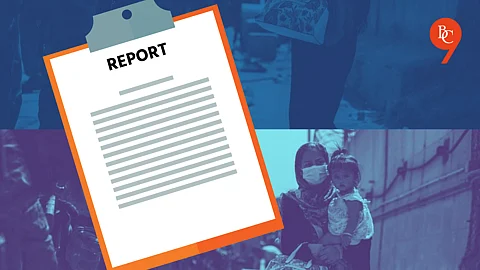

As the Taliban is gearing up to take total control of Afghanistan, an exodus of Afghans departing to accomodating countries is underway, much to some people's dislike. These individuals can be found easily on Twitter and some of them can be seen referencing a 2013 Pew research survey to support their statement on why countries should not accept Afghan refugees. They argue that Afghan refugees should be left behind in Taliban-controlled Afghanistan because they wanted Sharia law (according to the survey) and question the asylum seekers' desire to flee from their nation when the Taliban promises to do exactly that.
What does the Pew Research survey actually say (and don't say)?
On April 30, 2013, Pew Research released a research report that found out the percentage of Muslims in various Muslim countries wanting the implementation of Sharia law. In this report, 99% of Afghan Muslims have said that they favour making Sharia the official law in their country. But the sample size surveyed for the research was a mere 1509 in a country with a population of 3.8 crores. On top of that, most of the respondents were disproportionately male. Therefore, it is definitely not guaranteed that women also desire the imposition of Sharia law in Afghanistan. Also, what isn't made clear in the report's research methodology section is the age of the respondents. This puts a question on how many Afghan Muslims from different age groups want Sharia law as the official law in their country.
But are we misunderstanding what Sharia law is?
When most non-Muslims think of Sharia, the image that comes into their mind must be a barbaric world where women are reduced to slaves, crime being dealt with inhuman punishments and forced conversion of everyone to Islam. But Sharia law is far from this. In Arabic, Sharia literally means "flowing spring". Technically, Sharia is a set of morals that guides a person in the path to God.
But different interpretations of Sharia law exist and they all have been a topic of debate among Muslim scholars. Women are given extensive rights in some interpretations while in others, like the Taliban's, they are given close to no rights. Muslim scholars and critics have been clear that the Taliban had illicitly implemented draconian laws under the disguise of Sharia law. For example, Sharia law doesn't restrict women from leaving their homes without their male guardians or from entering the workforce.
Many Muslim countries around the world have implemented Sharia law up to some extent. An example, in Lebanon, family and property disputes among Muslim families are handled by Sharia law. The interpretations of Sharia law have been a matter of debate among Islamic scholars but most agree that the Taliban's interpretation of Sharia is illegitimate.
"Different groups have different interpretations," Michael Rubin, a senior fellow at the American Enterprise Institute (AEI) told Fox News. "The Taliban embrace an interpretation of Sharia law which is far stricter and less tolerant than the vast majority of Muslims."
Does the Afghan's desire for Sharia law in their country justify abandoning them at a time of crisis?
According to the Pew survey, 99% of Afghans want Sharia law as the official law in their country. But this doesn't mean that they want a restoration of the harsh laws that were applied by the Taliban in their 1996-2001 reign. And this definitely doesn't mean that every Afghan supports the return of the Taliban to power. Therefore, being fearful of Afghans due to their desire for Sharia in their land is unjustified and the dissemination of this viewpoint can lead to hostility towards the Afghan refugees from natives of accommodating countries.
The fear of Muslim refugees didn't ignite due to the recent Taliban takeover in Afghanistan. In fact, this fear has been around for a long time across continents and is an influential political stand that can even determine whether a candidate wins or loses an election. According to a survey by Pew Research Center, about half of Europeans fear the arrival of refugees can elevate the risk of attacks in their countries. With elections right around the corner for France and Germany, political parties have started utilising this sentiment to increase their voters base.
In a New York Times article, the founding chairman of the European Stability Initiative, Gerald Knaus while talking about the Afghan refugee crisis said, “If fears of an imaginary refugee stream will become a topic in the German election campaign it will only benefit one party and that is not the C.D.U. (Christian Democratic Union of Germany)” He continued, referring to Germany’s mainstream conservative party, “It will help the AfD (Alternative for Germany), which is actually weak because we have hardly had any refugees.” According to the article, migrant numbers in Europe have fallen to their lowest in years, and most borders that brought in an influx of Syrian refugees in 2015 are now guarded. But the fear of a Muslim refugee influx still looms.
This fear is common in India as well. A quick browse through Twitter can prove this. After the Taliban took over Kabul and the Indian government gave consent for opening borders to only Afghan Hindus and Sikhs, a debate has sparked between the left-leaning and right-leaning communities. Even some Muslim-majority countries have rejected requests to take in more Afghan refugees. Turkey, a Muslim-majority country, has started building a wall along its border to deter Afghan Migrants. With anti-Afghan refugee sentiment brewing across countries, even the fate of the fortunate Afghans who managed to leave their country does not look so bright.
